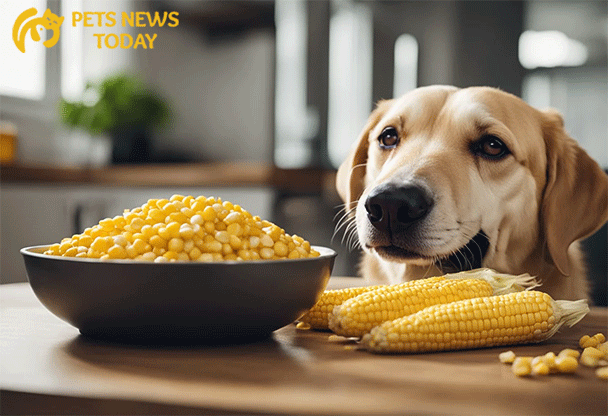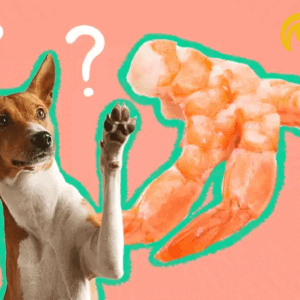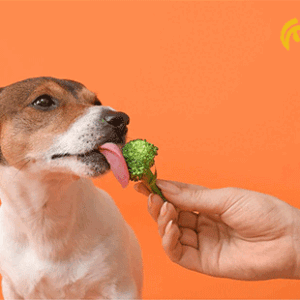Corn is a common ingredient found in many human foods, from cereals to snacks and even in pet foods. As dog owners, we often wonder whether corn is safe for our furry friends to consume. In this comprehensive guide, we’ll delve into the topic can dogs eat corn, exploring its potential risks and benefits to help you make informed decisions about your pet’s diet.
Is Corn Safe for Dogs? Can Dogs Eat Corn?
Yes, dogs can eat corn in moderation, but there are important considerations to keep in mind. Corn can provide some nutritional benefits to dogs, but it’s crucial to understand how to safely incorporate it into their diet.
Potential Benefits of Feeding Corn to Dogs:
- Source of Carbohydrates: Corn is a carbohydrate-rich food that can provide dogs with energy to support their daily activities.
- Dietary Fiber: Corn contains dietary fiber, which can aid in digestion and promote gastrointestinal health in dogs.
- Protein Content: While not as high as in animal-based proteins, corn still contains some protein, which is essential for muscle growth and repair in dogs.
- Vitamins and Minerals: Corn contains vitamins and minerals such as vitamin B6, niacin, and potassium, which are beneficial for overall canine health.
Risks Associated with Feeding Corn to Dogs:

- Digestive Issues: Some dogs may have difficulty digesting corn, leading to symptoms such as gas, bloating, or diarrhea. It’s essential to monitor your dog’s response to corn and adjust their diet accordingly.
- Allergies: Corn is a common allergen for dogs, and some may experience allergic reactions such as itching, skin rashes, or ear infections after consuming corn.
- High Glycemic Index: Corn has a high glycemic index, which means it can cause spikes in blood sugar levels. This may not be suitable for dogs with diabetes or those prone to obesity.
- Risk of Mycotoxin Contamination: Corn is susceptible to mycotoxin contamination, which can occur during storage or processing. Mycotoxins can be harmful to dogs if ingested, leading to serious health issues.
How to Safely Feed Corn to Dogs:
- Moderation: Corn should be fed to dogs in moderation as part of a balanced diet. It should not constitute the majority of their food intake but rather be offered as an occasional treat or supplement.
- Cooked Corn: Cooked corn is the safest option for dogs, as it is easier to digest than raw corn. Avoid adding salt, butter, or other seasonings, as these can be harmful to dogs.
- Remove Corn Kernels: When feeding corn on the cob, always remove the kernels from the cob to prevent choking hazards. Corn cobs should never be given to dogs, as they can cause intestinal blockages.
- Monitor for Adverse Reactions: Keep an eye on your dog after introducing corn into their diet for any signs of digestive upset or allergic reactions. If any adverse symptoms occur, discontinue feeding corn and consult your veterinarian.
Conclusion: In conclusion, corn can be safely fed to dogs in moderation, but it’s essential to be aware of the potential risks and benefits. As with any new food, introduce corn into your dog’s diet gradually and monitor their response closely. If you have any concerns about feeding corn to your dog or if they have pre-existing health conditions, consult with your veterinarian for personalized advice. With proper care and attention, you can safely incorporate corn into your dog’s diet and provide them with a variety of nutritious foods to support their overall health and well-being.


